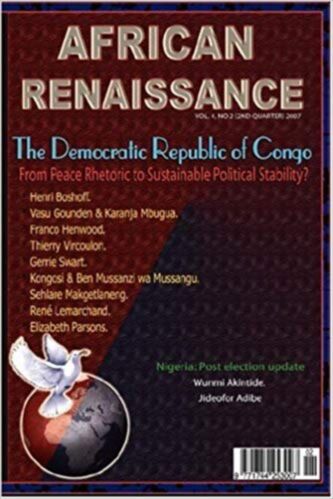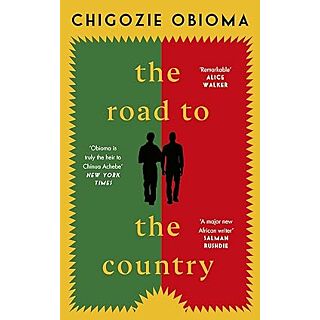Local Storage seems to be disabled in your browser.
For the best experience on our site, be sure to turn on Local Storage in your browser.
In this issue, we focus on the Democratic Republic of Congo, often referred to as the DRC, and formerly known variously as the Congo Free State, Belgian Congo, The Congo, Congo/Leopoldville, Congo/Kinshasa and Zaire. The DRC is a country rent by ethnic strife and civil war since 1994, culminating in the First Congo War that toppled Mobutu in 1997. Since 1998, the country has suffered greatly from the impacts of the devastating Second Congo War (sometimes referred to as the African World War), and believed to be the world's deadliest conflict since World War II. Contributors to this issue discuss these conflicts, efforts at mediation, and current talks of post conflict reconstructions. Henri Boshoff discusses the demobilisation, disarmament and re-integration processes in the DRC in the context of the reform of the country's security sector, noting that it is important not just to reform the defence sector, but also the police, justice and governance sectors. Vasu Gounden & Karanja Mbugua wonder whether the DRC is finally emerging from "hell" after a four year transition period led by Jospeh Kabila, and the first multiparty election in the country since independence in 2006, which Joseph Kabila won. They discuss the challenges of post-conflict reconstruction, noting that though the DRC remains turbulent, the African Union and the UN-led conflict transformation processes have reached a turning point. Franco Henwood assesses some of the key issues at the root of country's problems, blaming it on the country's predatory elites who " rob, pillage and plunder with impunity." While conceding that Kabila's leadership in ending the war in the country, and opposition leader Jean-Pierre Bemba'sdecision to honour the election result may be indicative of a normative shift in the country's politics, he argues that there remains enormous obstacles that must be overcome in the struggle to rebuild the country. Thierry Vircoulon discusses the key agenda for such reconstruction efforts while Gerrie Swart revisits the key actors in the conflict transformation processes in the country. Kongosi & Ben Mussanzi wa Mussangu however believe the humanitarian disaster in the country has only changed face since the 2006 elections, noting numerous instances of post-election conflicts. Sehlare Makgetlaneng examines the role of external and internal actors in the socioeconomic and political configurations of the DRC. René Lemarchand uses the DRC, Rwanda and Burundi to discuss power sharing arrangements among different contending groups in Africa, observing that though " power-sharing experiments in Africa have generally failed, this does not necessarily invalidate the case for consociationalism" Elizabeth Parsons discusses reforms in the natural resources sector in the post-election DRC, and argues that "the election of a new government and establishment of new political institutions in the DRC provide an ideal opportunity for broad-ranging reforms in a country notorious for widespread mismanagement, corruption and absence of the rule of law." Besides articles on the DRC, we also brought an update on the post-election situation in Nigeria.
| Author | Jideofor Patrick Adibe |
|---|












Sign In
Create New Account